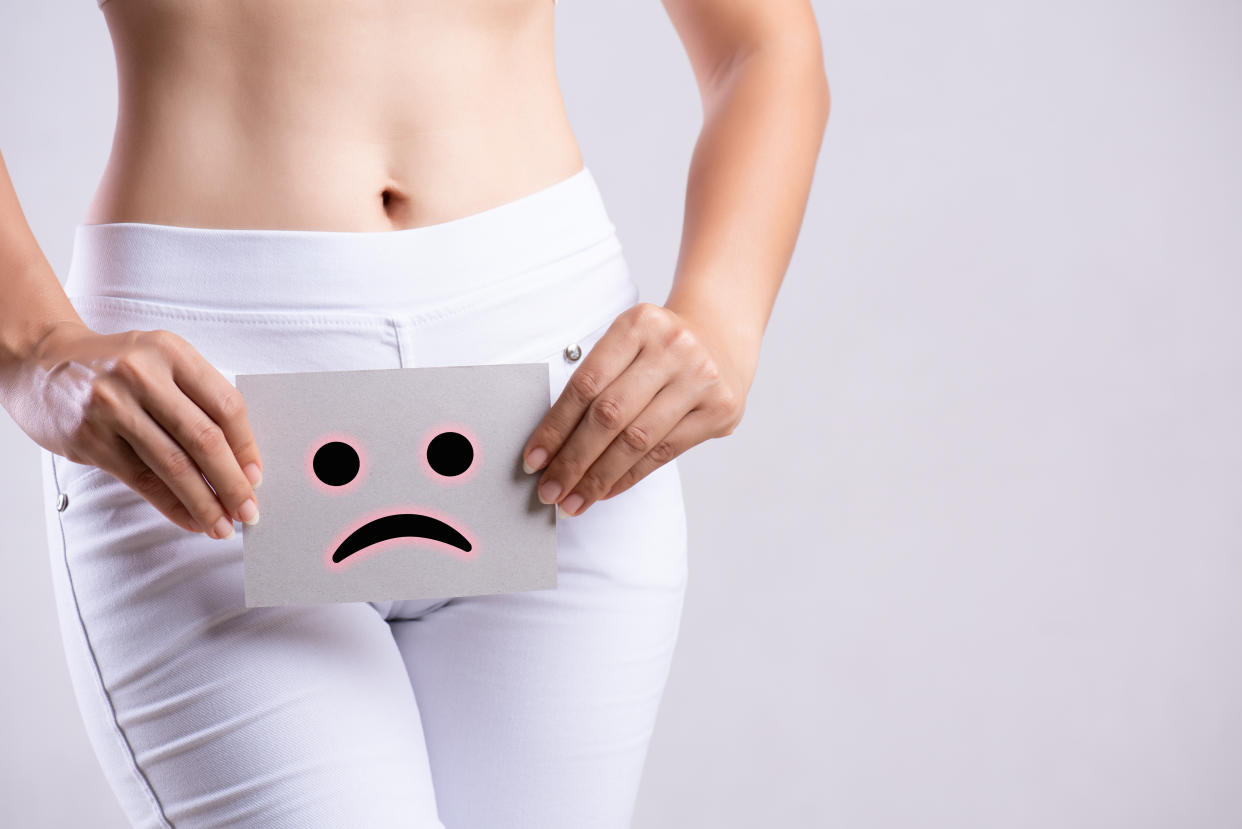Vaginal dryness causes menopausal women to ‘give up on a sex life’, TV doctor warns

A TV doctor claims many menopausal women “give up on a sex life” due to vaginal dryness.
Dr Dawn Harper from Channel 4’s hit show Embarrassing Bodies claims around half of women endure the little-known symptom as they go through “the change”.
Embarrassment causes many to suffer in silence, refusing to tell even their GP when sex becomes uncomfortable.
Dr Harper warns the ordeal leads to some withdrawing from intimacy altogether, putting a serious strain on their relationship.
READ MORE: Early menopause 'triples a woman's risk of multiple health issues'
The menopause occurs when a woman stops having periods and can no longer become pregnant naturally, according to the NHS.
A normal part of ageing, most go through “the change” between the ages of 45 and 55, with 51 being average in the UK and US.
Falling oestrogen levels can trigger everything from hot flushes and night sweats to mood swings and insomnia.
“The menopause is as individual as periods or pregnancy,” Dr Harper told Yahoo UK.
While the NHS recognises vaginal dryness as a symptom, the medic worries few realise how common it really is.
“If I stopped the first 100 people and asked them about the symptoms of the menopause, I wouldn’t get vaginal dryness,” she said.
“I could count on my hands the number of women who have come to me with vaginal dryness.
“If people aren’t telling me, they’re not telling anyone else.”
READ MORE: Ulrika Jonsson shares relatable message about menopause
Vaginal dryness is thought to affect around half of menopausal sufferers and, unlike other symptoms of “the change”, does not go away once a woman comes out the other side.
“Dryness occurs because of a lack of oestrogen and that persists,” Dr Harper said.
The NHS defines the condition as a sore, itchy feeling around the vagina; pain or discomfort during sex; a need to urinate more often than usual; and recurrent urinary tract infections.
“Some women don’t know they have it until they have sex,” Dr Harper said.
With intercourse becoming uncomfortable or even painful, they may avoid it altogether.

“For the most part women need to feel loved to have sex and men need to have sex to feel loved,” Dr Harper said.
“When sex starts to hurt, women withdraw.
“The husband may get ratty, so a woman’s libido gets lower.
“The chasm gets bigger and intimacy stops altogether.
“Far too many women are giving up on a sex life.”
Upping foreplay may help boost vaginal secretions prior to intercourse, however, Dr Harper warns the “baseline” lubrication a woman releases every day is still reduced.
READ MORE: Pregnancy and breastfeeding lowers risk of early menopause, study finds
The good news is over-the-counter products can help relieve vaginal dryness and make sex enjoyable again.
With no permanent solution, these have to be used daily - or before sex - going forward.
The NHS recommends applying water-based lubricants in and around the vagina or on the penis.
Vaginal moisturisers, like Vagisan, can also keep the tissues moist.
“People use homemade concoctions or Vaseline,” Dr Harper said.
“However, creams have a lipid component so are more soothing.
“We don’t put gel on our face and the skin around the vagina is more delicate.”
The NHS also recommends ditching any perfumed soaps, washes or douches.
A woman’s other half can go a long way in helping her feel more confident while battling vaginal dryness.
“Be supportive and understanding,” Dr Dawn said.
“Don’t have the conversation in the bedroom.
“If vaginal dryness gets brought up when sex is initiated, it can lead to feelings of guilt and accusation.”
The NHS recommends seeing a GP if the discomfort does not improve after several weeks despite trying the aforementioned tips.
Women should also seek help if vaginal dryness affects their daily life, or is accompanied by an unusual discharge or bleeding at anytime.
Find out more about vaginal dryness on the NHS’ website.


